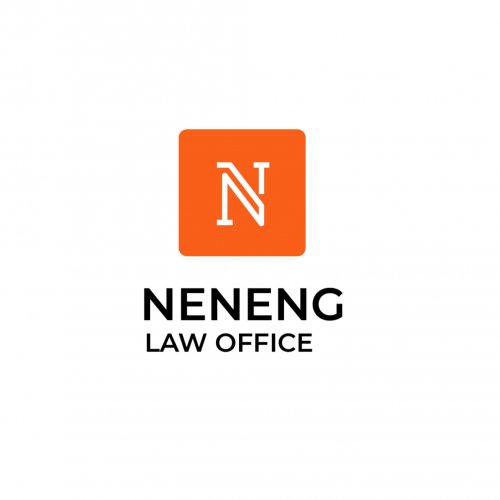Best Natural Resources Lawyers in Cameroon
Share your needs with us, get contacted by law firms.
Free. Takes 2 min.
Or refine your search by selecting a city:
List of the best lawyers in Cameroon
Legal guides written by CHI & Partners Law Firm:
- Ship Registration in Cameroon
About Natural Resources Law in Cameroon
Cameroon, located in Central Africa, is endowed with a vast array of natural resources, including petroleum, timber, minerals, and agricultural land. The management and regulation of these resources are crucial for the economy and the environment. Natural Resources Law in Cameroon governs the exploration, extraction, distribution, and conservation of these resources, ensuring sustainable development and compliance with national and international standards.
Why You May Need a Lawyer
The field of Natural Resources in Cameroon can be complex due to the myriad of regulations and interests involved. A lawyer can assist you in various situations:
- Ensuring compliance with environmental regulations for resource extraction.
- Negotiating and drafting contracts for the sale or purchase of natural resources.
- Resolving disputes related to land ownership or resource extraction rights.
- Understanding the permissions and licenses required for resource exploration.
- Advising on tax implications and financial regulations affecting natural resources.
Local Laws Overview
Natural Resource laws in Cameroon are influenced by both customary and statutory regulations. Here are some key aspects:
- The Petroleum Code regulates the exploration and production of oil and gas.
- The Mining Code governs the extraction of minerals and requires compliance with environmental and customary laws.
- The Forestry Law controls the exploitation of timber and requires sustainable forest management practices.
- Environmental impact assessments are mandatory for most resource extraction activities.
- Land rights can be complex due to the coexistence of formal legal systems and traditional practices.
Frequently Asked Questions
What are natural resources?
Natural resources are materials or substances that occur naturally within environments, such as minerals, water, air, timber, oil, and gas, which can be extracted and utilized for economic gain.
How are natural resources regulated in Cameroon?
They are regulated through a mix of statutory laws, like the Mining Code and Petroleum Code, and policies that aim to balance exploitation with conservation. Each resource type might have specific rules and guidelines.
Do I need a permit to explore natural resources in Cameroon?
Yes, obtaining a permit or license is necessary for exploring and extracting most natural resources. The process involves adhering to both environmental and operational regulations.
Can foreign entities own natural resources in Cameroon?
Foreign entities can engage in resource extraction under certain regulations and often form partnerships or joint ventures with local companies. Respecting national interests and laws is essential.
What are the consequences of illegal resource extraction?
Illegal extraction can lead to severe penalties including fines, confiscation of assets, suspension of operations, and potential legal action against responsible parties.
How does Cameroon ensure environmental protection concerning resource extraction?
The government mandates environmental impact assessments, monitoring, and sustainable practices compliant with national and international standards to mitigate environmental damage.
What recourse do landowners have if their land is affected by resource extraction?
Landowners can seek legal recourse through compensation claims or disputes resolution mechanisms provided under Cameroanian law, especially if their customary land rights are affected.
Are there incentives for investing in Cameroon’s natural resources?
The government provides various incentives including tax breaks, streamlined licensing processes, and infrastructural support to encourage investment in the natural resources sector.
What role do local communities play in resource management?
Local communities participate in resource management through consultations, social contracts, and benefiting from revenue-sharing programs that align with sustainability goals.
How can I stay updated on natural resource policies in Cameroon?
Staying informed through government publications, media outlets, and consulting with local legal experts or resource management organizations can provide current insights into policy changes.
Additional Resources
Here are some resources and organizations that can provide additional help:
- Ministry of Mines, Industry and Technological Development
- Ministry of Forestry and Wildlife
- Cameroon Environmental Watch - NGOs focused on conservation and sustainable use
- Chambers of Commerce for networking and legal advisories
- World Bank Reports on Cameroon's natural resource management
Next Steps
If you need legal assistance in the area of natural resources in Cameroon, consider the following steps:
- Identify your specific needs and the type of legal assistance required, such as contract negotiation or regulatory compliance.
- Consult with a lawyer who specializes in natural resources law in Cameroon. They can guide you through complex legal frameworks and represent your interests effectively.
- Reach out to local legal aid organizations if affordability or accessibility to legal services is a concern.
- Engage with the relevant government bodies to understand more about the regulations and obtain necessary permits if needed.
- Consider joining industry associations that provide legal advice and policy updates to stay informed about changes in the natural resources sector.
Lawzana helps you find the best lawyers and law firms in Cameroon through a curated and pre-screened list of qualified legal professionals. Our platform offers rankings and detailed profiles of attorneys and law firms, allowing you to compare based on practice areas, including Natural Resources, experience, and client feedback.
Each profile includes a description of the firm's areas of practice, client reviews, team members and partners, year of establishment, spoken languages, office locations, contact information, social media presence, and any published articles or resources. Most firms on our platform speak English and are experienced in both local and international legal matters.
Get a quote from top-rated law firms in Cameroon — quickly, securely, and without unnecessary hassle.
Disclaimer:
The information provided on this page is for general informational purposes only and does not constitute legal advice. While we strive to ensure the accuracy and relevance of the content, legal information may change over time, and interpretations of the law can vary. You should always consult with a qualified legal professional for advice specific to your situation.
We disclaim all liability for actions taken or not taken based on the content of this page. If you believe any information is incorrect or outdated, please contact us, and we will review and update it where appropriate.
Browse natural resources law firms by city in Cameroon
Refine your search by selecting a city.














